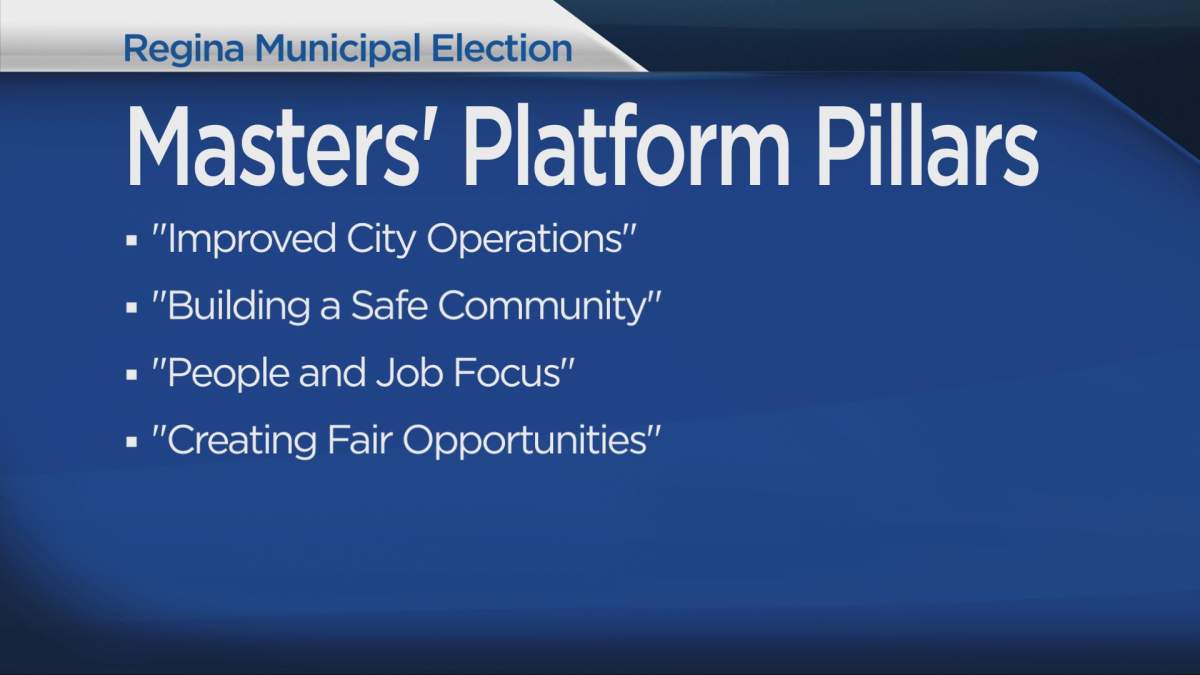Regina mayoral candidate Sandra Masters unveiled a campaign platform focused on “creating a Regina for every citizen” Thursday morning.

Speaking outside of Regina city hall, Masters promised to save money through streamlining operations, create a safer community with proactive policing and anti-poverty measures and to grow local business with a plan based on “four key pillars”.
“They’re broad buckets, but I believe they encompass much of what I hope to accomplish with council and administration,” Masters said in her stump speech.
“Regina is being out-invested and out-hustled in economic development, our feeling of safety has diminished, we’re losing young people and our city is looking in need of care. And for years we’ve offered symbolism and promises instead of action.”
High on Masters’ list of platform actions includes a commitment to finding 15 per cent in operations savings through “increased efficiencies”, and that those saving would be reinvested within the city.

Get breaking National news
When asked if streamlining could result in lost jobs, she added that more investigation would be needed to determine where savings could be found.
“I think there’s waste everywhere. There’s probably waste at your job. There’s probably waste at my job,” Masters told reporters.
“Some of it is about how are we allocating the dollars according to what we’re trying to achieve, some of it is ‘are we doing too many things?'”

City administration declined to comment on Masters’ efficiency review plans.
Masters also announced plans to introduce multi-year budgeting, a tool she says will “improve predictability” and “increase accountability of annual city budgets and taxes”.
When it comes to promoting business and creating jobs, Masters announced intentions to adopt an inclusive local procurement policy at city hall.
“The idea there being that, when possible, in terms of building a framework that supports hiring local, have an intention to hire local as well as Indigenous businesses,” she explained.
Masters also promised to create an anti-poverty strategy within one year if elected.
When asked how that would differ from plans such as End Homelessness Regina which have already attracted investment, she said her strategy would extend beyond housing to address issues such as mental health, addictions and food insecurity.
She said that would require partnering with more senior levels of government as well as community organizations.
“You have to co-ordinate with those jurisdictions of health, social services, education, police and community organizations,” she said.
- More than half of small businesses say U.S. no longer reliable: CFIB data
- The Bank of Canada says these are the 3 warning signs for mortgage default
- Carney says Canadian military participation in Middle East war can’t be ruled out
- Canadians want floor-crossing MPs to face ‘immediate’ byelections: poll









Comments
Want to discuss? Please read our Commenting Policy first.